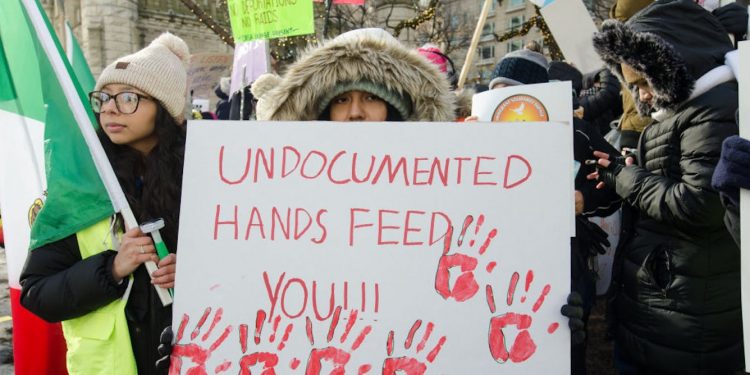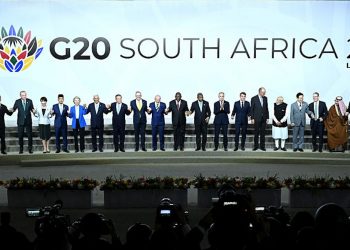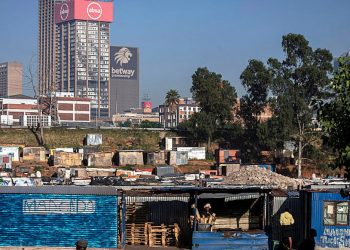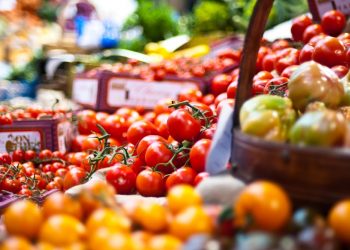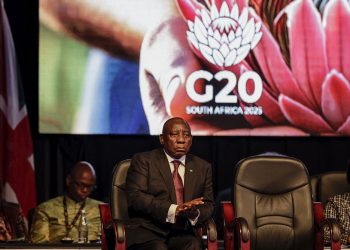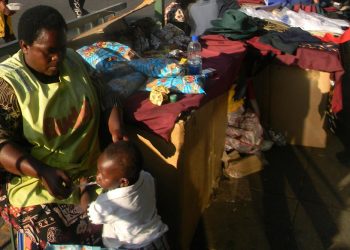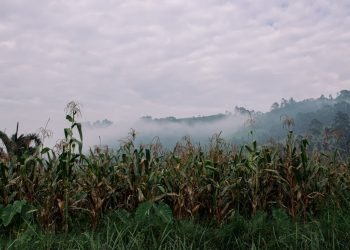Donald Trump, America’s new president, has cut back massively on US commitments to asylum seekers, blocked all asylum processes and started to remove irregular immigrants.
Trump’s new measures are far reaching. They include the suspension of the US refugee admissions programme. Flights booked for refugees to the US have been cancelled. Arrests and deportations have begun.
Strongly anti-immigrant policies were also pursued under the Biden administration, though Trump’s dramatic steps take them much further. Other countries in the global north have also introduced tougher policies. The 2024 EU Pact on Migration and Asylum sets out tougher border controls, quicker assessment of asylum seekers and swifter removal of those who did not qualify. In the UK, Labour prime minister Keir Starmer has promised to bring down the net migration rate and treat people-smugglers like terrorists.
Based on my research into migration over the past 30 years I believe that these measures are unlikely to last. There are two linked trends that make closing the borders of the global north impractical and destined for revision.
The first is that populations in most of the global north are ageing fast (on average) and the fertility rate, or natural population growth rate, has plummeted. There are many more older people as a percentage of the population.
Secondly, with a workforce shrinking and the dependency ratio (the proportion of non-working to working people) rising rapidly, closing borders to potential labourers from other countries, without any other change, would lead to declining living standards in the global north. Economic growth and government revenues would slow or stagnate, undermining infrastructure maintenance and social service provision.
There are several possible strategies that could be alternatives to anti-immigration measures. Some older people could migrate south, robots and AI could do more work, workers in the global south could perform remote work for the north, and arrangements could be made to allow migrants into the north either permanently or as circulating migrants.
All these strategies are already in use, if modestly. Their application would have to expand considerably.
Misplaced panic
The responses of governments in the global north are exaggerated. Governments putting in place tough anti-immigrant measures have done so on the back of a narrative that there’s been a significant rise in the number of migrants worldwide.
This isn’t true. Some countries, such as the US, Germany and Colombia, have seen a spike in refugees and other migrants. But for the rest of the world the picture remains much the same as it has done for decades.
Foreign-born residents (the most widely used definition of migrants) rose as a proportion of residents worldwide from 2.3% in 1970 to 3.6% in 2020. But in 1960 the number was over 3%, and in the late 1800s migrants made up somewhere between 3% and 5% of the global population.
So, 3.6% is nothing new.
As for refugees, in 2023 there were about 38 million, of whom 69% sought refuge in neighbouring countries and 75% in middle- and low-income countries.
In general, therefore, rich countries have not been carrying the greatest burden.
The real reason behind these tougher measures is that living standards have stagnated in many countries in the Organization for Economic Cooperation and Development. The cost and availability of housing have worsened; inequality has grown since the 1980s; the quality and availability of public services have deteriorated since the global financial crisis of 2008 and COVID-19; and the quality of employment has shifted to precarious work and poorly paid service sector occupations.
This has contributed to the rise of populism, including anti-foreigner sentiment and even xenophobia.
Trump’s actions are the most extreme yet. They include an order to block “aliens involved in the invasion” using “appropriate measures” that give the security forces further powers. The prohibition of southern border asylum hearings in the US and the instruction to “remain in Mexico” means that prospective asylum seekers from third countries may not cross the border to make their applications at the port of entry. They must apply remotely.
Trump has also ordered that birthright citizenship must be limited to the children of certain categories of residents, essentially citizens or those with residence rights in the form of a “green card”. This move has been temporarily blocked in some states by judges as unconstitutional.
In addition, the acting head of the Homeland Security Department gave Immigration and Customs Enforcement officials the power to deport migrants admitted temporarily into the US under several programmes of the Biden administration, targeting refugees from Cuba, Nicaragua, Venezuela and Haiti, and possibly Afghan and Ukrainian refugees too.
The very first bill to receive final approval from the US Congress under Trump’s second term, the Laken-Riley Act, would require the detention and deportation of migrants who enter the country without authorisation and are charged with certain crimes. This bill was passed with 263 votes and 156 votes against, meaning that 46 House Democrats supported the Republican bill.
In contrast, in the global south, as I have discussed elsewhere, the trend has been in the opposite direction. South American regional communities liberalised migration most extensively in recent decades, but African regional communities have made progress too, as has the Association of Southeast Asian Nations.
The way forward
Some alternative strategies are leading the way.
In Canada, the Temporary Foreign Worker programme has expanded steadily since 1973, increasingly including long-term circulating migrating lower-skilled workers for key occupations like catering, care, construction and agriculture. Though it is currently under political scrutiny because of the panic in the north over migration, and because of housing shortages in Canada, it is likely to survive and evolve. Similar systems are emerging across the global north.
In the EU, Talent Partnerships are now encouraged. Germany, for example, has talent partnerships with Kenya and Morocco, where they train health workers and IT technicians in those countries to work and live in Germany. Spain has various partnerships in Latin America and Africa. Prime minister Pedro Sanchez has chosen to be upfront on the choices. In October last year he told the Spanish people:
Spain needs to choose between being an open and prosperous country or a closed off poor country.
The current fashion for population protectionism in the global north is increasingly nasty, but it is unlikely to stand the test of time. Several constructive responses to the rising dependency ratio are feasible, but being open to more migration, possibly in new forms and through new channels. is an inevitable part of the solution.
New formal pathways for working migrants and reasonable systems for asylum seekers, along with full enforcement of rules against irregular migrants, could be the combination that works politically and economically.
Alan Hirsch receives funding from the New South Institute for research and the University of Cape Town for advice and supervision.

